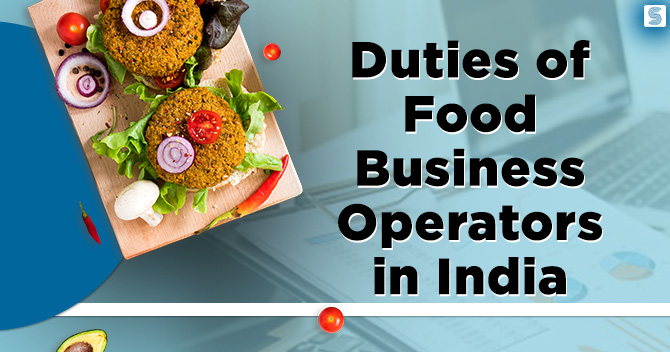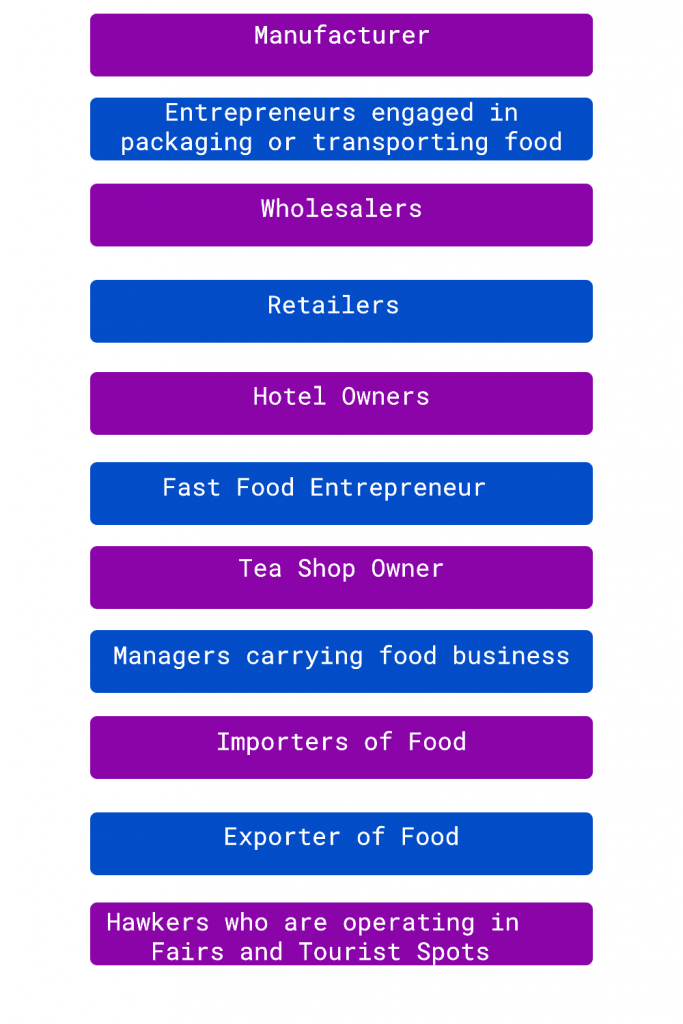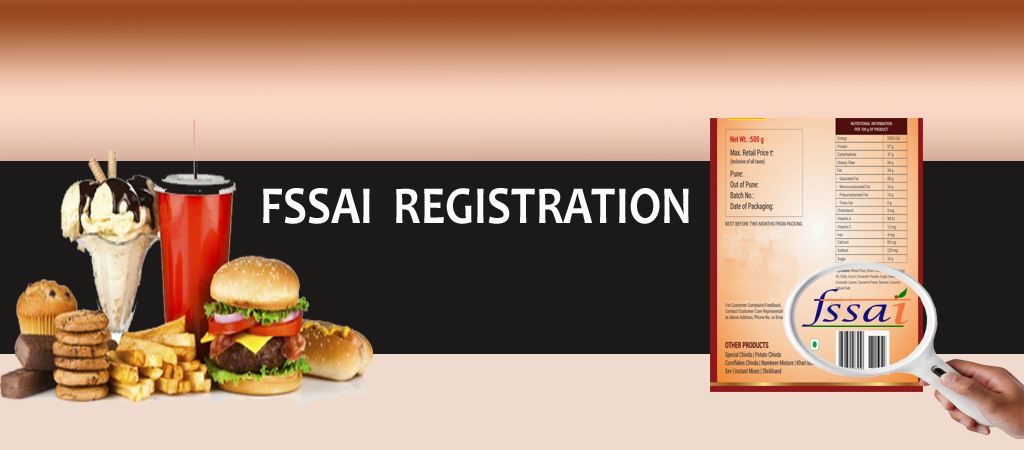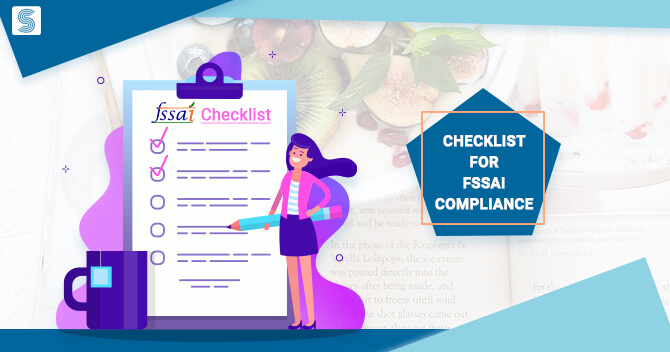Duties of Food Business Operators in India

Shivani Jain | Updated: Jul 06, 2020 | Category: FSSAI
In view of global food consumption, India owns a considerable food sector. Each state has its own set of laws regulating the food business, food safety, hygiene, etc. However, not only the central government but every food business operator must comply with the Food Safety and Standards Act, 2006. In this article, we will thoroughly discuss the duties of Food Business Operators in India.
Table of Contents
Meaning of Food Business
The term Food Business is defined under section 3(1)(n) of the FSS Act. Any undertaking carrying out activities like Manufacturing, Storage, Distribution, or Sale of the food product is known as a Food Business.
Catering services, food services, and the sale of food ingredients are also included in the definition of Food Business.
Who are Food Business Operators?
As per section 3(1)(o) of the Food Safety and Standards Act, 2006, any person who owns or is responsible for confirming the compliance of this act is known as a Food Business Operator. Further, the definition of FBO includes the following:

- Manufacturer;
- Entrepreneurs engaged in packaging or transporting food;
- Wholesalers;
- Retailers;
- Hotel Owners;
- Fast Food Entrepreneur;
- Tea Shop Owner;
- Managers carrying food business;
- Importers of Food;
- Exporter of Food;
- Hawkers who are operating in Fairs and Tourist Spots.
Duties of Food Business Operators in India
In India, the duties of Food Business Operators are as follows:
- An FBO needs to comply with all the stages of production along with the production, processing, import, distribution, and sale of the food product;
- An FBO can not manufacture, sell, store and distribute any article of food which is not safe for human consumption;
- An FBO can not sell sub-standard or mis-branded food product;
- An FBO cannot sell food product that contains extraneous matter;
- An FBO cannot sell food product that needs prior license or permission from the FSSAI;
- An FBO cannot sell food product that is prohibited by the FSSAI or central/ state government;
- An FBO cannot employ any person or worker suffering from contagious, infectious or loathsome disease;
- An FBO must not engage itself in selling or offering for sale food articles to the vendor. It needs to give a declaration or guarantee in writing in the form specified by the regulations. The declaration must specify the nature and quality of such article.
- An FBO cannot sell a food product which is a part of a batch unsafe for human consumption. In this case, a detailed assessment is carried out for the whole lot within a specified time. If no evidence found in against, then the rest of the batch will be considered safe for consumption;
- An FBO must ensure sanitary, hygiene, and safety of the food products offered;
- An FBO must obtain an FSSAI License from the FSSAI before supplying food to any vendor.
Food Safety Training and Certification Program
It is an online training program mandatory for every FBO licensed under the FSS Act, 2006. This program aims to confirm the safety and hygiene across the food supply chain. Every licensed food business must have at least one certified and trained food safety supervisor in its premise.
Due to COVID-19 epidemic, it has become mandatory for all the stakeholder of the food eco systems to obtain training under this program. The term “stakeholder” includes Manufactures, packagers, retailers, and transporters, etc.
The Food Business Aggregators, NGOs running community kitchen like langar also needs to get their food handlers trained for precautionary measures.
After the completion of training, the FoSTaC portal [1] will issue a certificate of participation to each FBO.
Conclusion
To summarise, the principal duty of a food business operator is to ensure the safety and hygiene of its food product. Moreover, it needs to mandatory obtain FSSAI License and undergo an online food safety training as well. At Swarit Advisors, you can obtain FSSAI License in a simple and straight forward manner. Our experts rank high in delivering on-time FSSAI registrations.
Read, More:A Complete Checklist to Start a Restaurant Business in India














